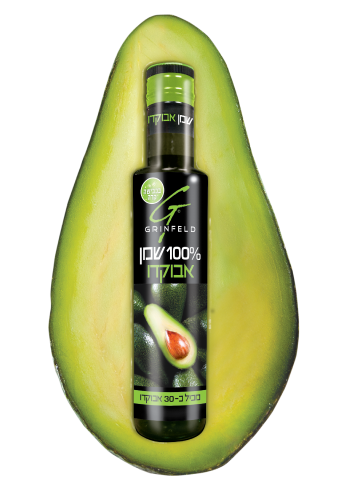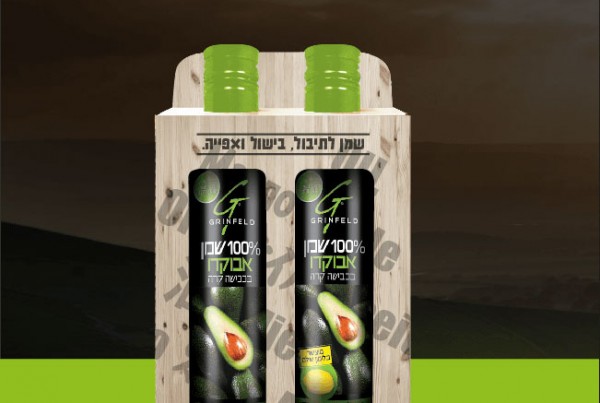What is it Good For?
Avocado oil typically contains high levels of vitamin E (tocopherol), a powerful anti-oxidant, which helps to prevent heart disease and slows the aging process.
Studies show that high levels of vitamin E in food correlate with less risk of cardiac and blood vessel diseases. Vitamin E also contributes to the elasticity and resistance of skin cells, and protects the skin from oxidation and radiation damage. The important contribution of vitamin E to the skin actually comes via nutrition – since by that means the vitamin is incorporated into the skin cells’ membrane.
Rich in Chlorophyll
The bright green color of avocado oil testifies to its high content of chlorophyll, lutein and other green pigments found in the flesh of the fruit. Chlorophyll is a green pigment, vital for photosynthesis, the creation of carbohydrates, and the production of oxygen by plants. Studies of chlorophyll focused mainly on the field of cancer (prevention and treatment), and emphasized the power of chlorophyll in protecting from carcinogens. Chlorophyll has an anti-bacterial effect, and as such it is added to medications, mainly anti-inflammatory preparations.
Rich in Unsaturated Oil
Avocado oil is rich in monounsaturated oil (mainly monounsaturated fatty acid 18:1) and contains a low quantity of saturated oil. It does not contain trans fat.
Short Cold-Press and Low Oxidation Levels
The quality of oil is based on two indices: the pressing process and the oxidation level. The single cold-press production process is the highest quality. Oxidation levels of below 1% are highly recommended.
Avocado oil is cold-pressed in a short, controlled process that does not harm its properties. It is a purely physical process, combining low pressing temperatures and a closed oxidation-prevention system. Compared with refined oil which requires, for the purpose of production, a chemical refining process that compromises its aroma, quality and flavor, cold pressing the avocado oil preserves its quality and flavor.
The acidity level of the oil is determined by the quantity of free fatty acids in it which are prone to oxidation. The lower the level of fatty acids, the higher the quality of the oil; it contains less oxidizing substances and is less prone to oxidation and spoiling. The lower the acidity of the oil, the higher is its quality. The flavor of low-acidity oil is more delicate and it does not leave an itching sensation in the throat.
High Smoke Point
The higher the oil’s smoke point, the more stable it is considered in heating, cooking and frying conditions.
The smoke point of avocado oil is the highest among all cold-pressed vegetable oils.
A rich, full flavor with a wonderful aroma and a delicate consistency.
Avocado oil is very concentrated in flavor and texture – a property that provides optimal results when using a small quantity, compared with other oils. The oil has a rich nutty avocado flavor, suited to accompany any dish or stew, good for flavoring salads, meat, fish.
Storage
Can be kept for long periods at room temperature.
Health ranking for avocado oil: highly recommended, see link:
Good for dressing salads
A small quantity of avocado oil improves any salad in both flavor and health. Delicate, without any sense of the presence of oil at all.
Using one tablespoonful of avocado oil is equal to 3 tablespoons of any other oil.
Good for cooking.
In contrast to other oils, since avocado oil does not burn at the commencement of cooking, meat and vegetables can be cooked for a long time, while retaining the flavor of the meat and shortening the work process.
Good for roasting.
Due to the high chlorophyll content of the oil, the color of the gravy at the end is rich, green and fresh-looking.






